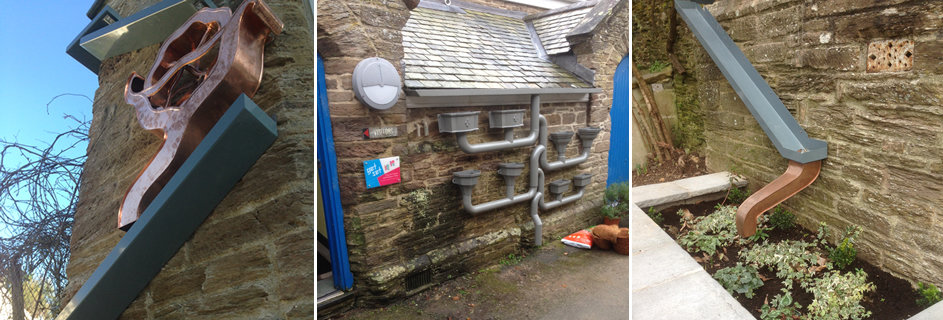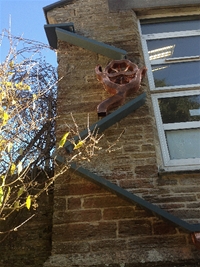WaterShed Aveton Gifford

WaterShed Aveton Gifford - tackling sewer flooding
Our analysis shows that historic sewer flooding in Aveton Gifford is largely caused by too much surface water entering the combined sewerage network.
A project to alleviate sewer flooding in the village was completed in January 2017.
The WaterShed Aveton Gifford project worked with the parish council, the school and householders to reduce the amount of surface water entering the combined sewer.
The project had three strands:
- Building a new surface water pipe and swale to take rainwater from the school, the car park and the Memorial Hall to the stream
- Building rainwater harvesting features at the school
- Installing free rainwater harvesting features at individual properties.
More details
Water flowing off roofs, hard-standings and other impermeable areas sometimes overloaded the sewerage network in the village and caused it to overflow.
 Diverting rainwater from the school, the car park and the Memorial Hall into the stream removed around 25 per cent of the surface water and return capacity to the sewerage network, reducing the risk of sewer flooding.
Diverting rainwater from the school, the car park and the Memorial Hall into the stream removed around 25 per cent of the surface water and return capacity to the sewerage network, reducing the risk of sewer flooding.
Around 20 households signed up for a free downpipe disconnection using sustainable drainage methods to reuse or store water in their garden.
Water attenuation features like planters and water butts were installed at the school, including a waterwheel on the front wall as a visual reminder of the water management going on inside the school grounds.
Our Flood Risk Manager, Richard Behan, said: "There are many innovative ways of working with communities to reduce flooding and pollution and this project in Aveton Gifford is a good example of what can be done.
"Often what is needed is to reduce the volume of water going into the combined sewer for a short period when rainfall is at its most intense. This scheme will enable the sewerage network in the village to operate as it should without overflowing, and we hope this will remove the incidence of sewer flooding in the village."
The project is our latest WaterShed project, which is aiming to tackle sewer flooding and pollution in a sustainable way at hotspots across our region.
